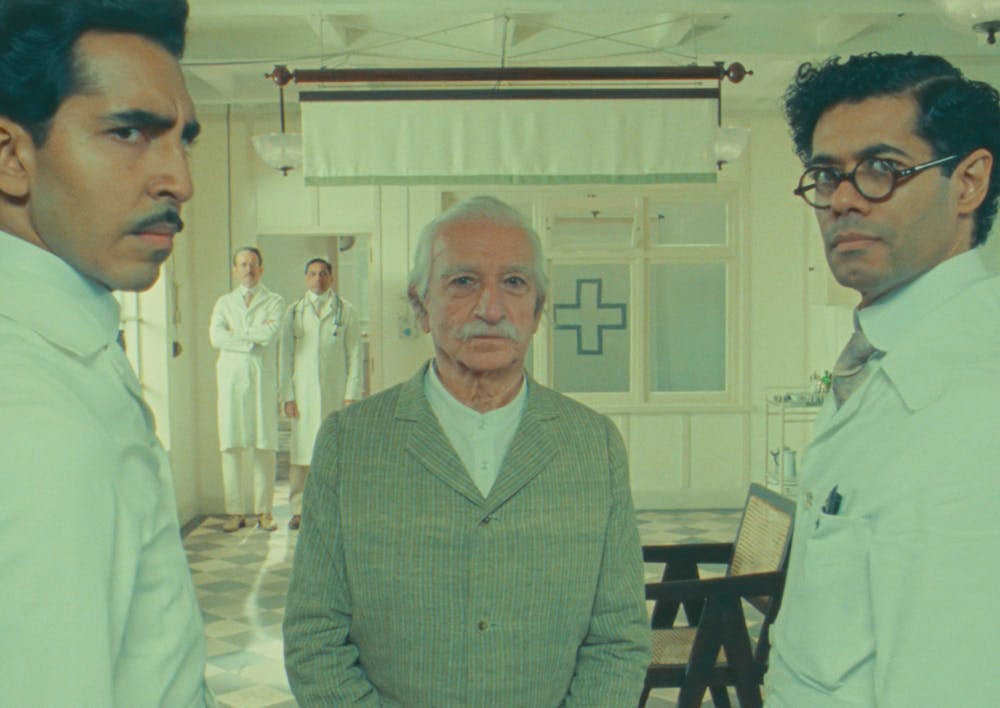Wes Anderson has always been an anomaly. But in recent years, his mystique has only continued to grow. He is probably the most well-known, independent filmmaker and somehow simultaneously the most misunderstood. As much as people would like, Anderson’s work can’t be contained in a Tiktok trend or an aesthetic photograph. But these trends, which often fall flat, indirectly prove the real genius of Anderson.
The common image of an Anderson film is one with symmetrical framing, a pastel color palette and a lot of people not really knowing how to express their true feelings. All of these qualities are true to Anderson’s work. But when poorly replicated, it becomes clear how much more there is to the director beyond the often attempted distillation of his work down to one dreadful word: quirky.
Anderson’s four newly released short films — all based on stories by Roald Dahl, “The Wonderful Story of Henry Sugar,” “The Swan,” “The Rat Catcher” and “Poison” — are far from his best work, but they are the best films for understanding who Anderson is as a director. These shorts feel like the closest thing to a manifesto Anderson has ever produced. At every turn, Anderson wants the viewers to know that they are watching a film: He shows set changes, props being brought in and out by stagehands and characters constantly breaking the fourth wall.
“The Wonderful Story of Henry Sugar” follows a wealthy man named Henry Sugar (Benedict Cumberbatch), who discovers a medical journal chronicling the peculiar case of Imdad Khan (Ben Kingsley), a man who is able to see without his eyes. Sugar uses the insights gained by this report to be able to read the front of cards just by looking at their backs, being able to win copious amounts of money from blackjack in the process.
“The Swan” chronicles a narrator (Rupert Friend) recounting his childhood experiences with bullying and “The Rat Catcher” follows an eccentric exterminator (Ralph Fiennes) chronicling his unorthodox processes. Finally, “Poison” is about a man (Benedict Cumberbatch) who feels a snake crawl into his bed and, worrying that it will bite him, stays completely still until a doctor comes to appease the situation.
All these stories, with the exception of the more complex “The Wonderful Story of Henry Sugar” are very short and to the point — being able to put the style of Anderson’s filmmaking front and center.
Recently, Anderson has become fascinated with exploring the theatrical artifice of film within his work, telling meta-narratives about the very nature of art itself. When asked about his new interest by the New York Times, Anderson stated: “When you watch a movie, generally you’re seeing someone try to create an illusion of something happening, because in fact right off the frame is a light and a guy with a microphone. But for me, the theatrical devices really happen.”
In this way, these are Anderson’s most personal films. The narratives themselves do not pertain to Anderson’s life, but audiences are allowed to watch the films through his eyes, where the magical illusion of film is replaced by the mere mechanics of its production.
Anderson does not work to hide that these shorts are adapted from previously written stories. The dialogue for every short is almost always verbatim ripped from Dahl’s original language, including scene descriptions and dialogue queues. Dahl himself is a character, who behind his writing desk at his English country home interjects into every film at his own will. None of these choices change the contents of the stories themselves, but they all do their part in pulling back the curtain of the narrative’s construction.
While there are better, more complete works to enjoy in Anderson’s filmography, these four short films are undeniably crucial in exploring who Anderson is as a postmodern artist. They may be a little inaccessible to those unfamiliar with the standard motions of his past movies, but they will nonetheless be something new and compelling to chew on for a long while.

Finn Kirkpatrick was the senior editor of multimedia of the Brown Daily Herald's 134th editorial board. He is a junior from Los Angeles, California studying Comparative Literature and East Asian Studies. He was previously an arts and culture editor and has a passion for Tetris and Mario Kart.





